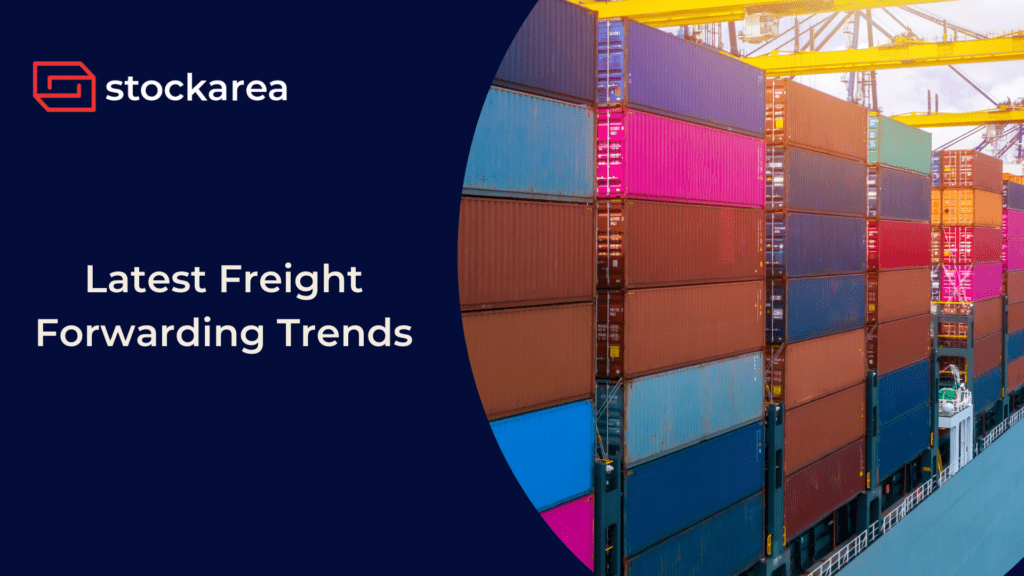As we step into the future, the resilience forged in the crucible of the past years becomes paramount, as does the anticipation of new challenges and opportunities. While the logistical congestion that plagued the industry is showing signs of alleviation, fresh issues are emerging, accompanied by prospects for growth. The crucial lesson from recent times is crystal clear: preparation is the linchpin for not only surviving but thriving in the face of uncertainty.
Here are the latest trends in the freight forwarding industry that will be the pillars of success in this evolving industry
1. Real-Time Cargo Tracking
Real-Time Cargo Tracking is poised to take center stage in the freight forwarding trends. With the integration of IoT (Internet of Things) devices, the industry is witnessing a transformative shift towards enhanced visibility and control over cargo movements. These smart devices, embedded in shipments, offer real-time insights into the location, condition, and status of goods in transit. The implications are profound — from minimizing the risk of delays and losses to optimizing routes and ensuring the integrity of sensitive or perishable cargo. As the freight forwarding sector fine-tunes its strategies for the upcoming year, the adoption of Real-Time Cargo Tracking through IoT heralds a new era of efficiency and responsiveness, enabling stakeholders to make informed decisions and swiftly address potential disruptions in the dynamic global supply chain.
2. AI and Automation
In the dynamic landscape of freight forwarding trends, the integration of Artificial Intelligence (AI) and automation stands as a transformative trend. As the industry adapts to the evolving challenges, AI technologies are increasingly employed to enhance efficiency and decision-making. From predictive analytics optimizing route planning to automated documentation processes streamlining customs clearance, AI is revolutionizing various facets of the supply chain. Automation, too, plays a pivotal role, with robotic systems streamlining warehouse operations and autonomous vehicles transforming the face of last-mile delivery. In an era where responsiveness and agility are paramount, the marriage of AI and automation emerges as a beacon, offering not just solutions to existing challenges but also paving the way for unprecedented possibilities in the freight forwarding realm.
3. Green Logistics and Sustainability
Fueled by a collective responsibility to address environmental concerns, freight forwarding companies are increasingly integrating eco-friendly practices into their operations. From optimizing transportation routes to embracing energy-efficient technologies and sustainable packaging solutions, the industry is making strides towards reducing its carbon footprint. As sustainability takes center stage, forward-thinking companies are not only meeting regulatory requirements but also gaining a competitive edge by aligning with the growing demand for environmentally responsible supply chain practices. The journey towards greener logistics isn’t just a choice—it’s a strategic imperative for those aiming to navigate the future of global trade successfully.
4. Digital Freight Platforms
The trend of digital freight platforms is significantly transforming conventional logistics paradigms through the seamless integration of shippers, carriers, and freight forwarders, all of which are powered by cutting-edge technologies. By incorporating real-time visibility, automated processes, and efficient collaboration, these platforms not only augment the supply chain’s overall agility and responsiveness but also establish a strong basis for well-informed decision-making. As stakeholders in the industry conclude their plans for the upcoming year, the incorporation and utilization of Digital Freight Platforms will undoubtedly be critical to their success. These platforms provide a way to navigate the complexities of international commerce with unparalleled transparency and efficiency.
5. Dynamic Routing Algorithms
As the freight forwarding trends rebounds from the intricate disruptions of recent years, these sophisticated algorithms play a pivotal role in optimizing shipping routes in real-time. With the ability to consider factors such as traffic patterns, weather conditions, and unexpected disruptions, Dynamic Routing Algorithms empower freight forwarding companies to make agile decisions, ensuring the most efficient and cost-effective paths for cargo movement. This technology not only enhances operational efficiency but also fortifies the industry against the unforeseen challenges that may arise in the constantly evolving world of international trade.
6. Cloud-Based Logistics Solutions
Leveraging the power of the cloud, logistics providers are embracing scalable and adaptable technologies to streamline operations, enhance visibility, and foster collaboration across the supply chain. Cloud-based platforms offer real-time data accessibility, enabling stakeholders to make informed decisions swiftly. From inventory management to route optimization, the cloud provides a centralized and secure environment for data storage and analysis, fostering a more agile and responsive logistics ecosystem. As the industry navigates uncertainties, cloud-based logistics solutions stand out as a key enabler, empowering businesses to stay ahead in an ever-evolving global marketplace.
7. Customer-Centric Digital Platforms
As businesses recognize the paramount importance of user experience, customer-centric digital platforms trends are emerging freight forwarding trends, for enhanced communication, transparency, and efficiency. Offering real-time visibility into shipments, streamlined documentation processes, and personalized tracking, these platforms empower clients with self-service options and comprehensive analytics. The focus is not just on moving cargo but on creating a seamless, end-to-end experience for customers, aligning with the growing expectation for agility and responsiveness in the supply chain. In the face of evolving market demands, freight forwarders are leveraging these digital solutions to not only meet but exceed customer expectations, marking a paradigm shift in the industry’s approach to client relationships.
Related posts
- Top 10 Ocean Freight Forwarders In India
- Top 12 Freight Forwarding Companies In Delhi
- Navigate Supply Chain Disruptions With Digitalization
- Guide To 3PL In Reverse Logistics
- Distribution Channels: Types, Methods & Best Practices
- Top 10 Latest Supply Chain Trends In 2024
- 13 Best Shipping Companies In India
- List Of 11 Best Logistics Companies In India
- What Is Reverse Logistics?
- 5 Key Differences Between Supply Chain Management & Logistics
- Understanding Merchandise Export from India Scheme (MEIS)
- What is Freight Forwarding?
- Everything You Need To Know About FTL Shipping
